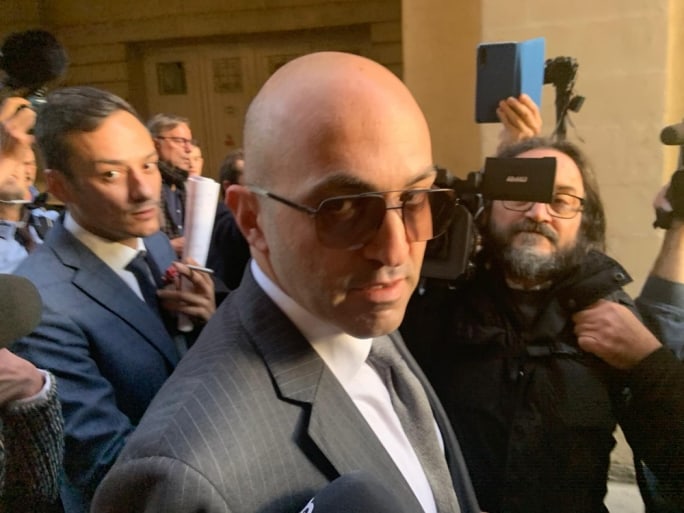
Yorgen Fenech’s lawyers protested with the judges hearing the Daphne Caruana Galizia inquiry saying thejudges are doing away with the principle of “listening to the other side”. They said it in Latin, as if when it’s loudly sung and in a foreign tongue it would make more sense. Audi alteram partem … let the other side be heard as well.
The first side, they complain, is Daphne Caruana Galizia’s family, throwing in some more Latin for good measure. What’s their locus standi, Yorgen Fenech’s lawyers ask? What’s their interest in this case? Why should Daphne Caruana Galizia’s family’s lawyers be heard in an inquiry discovering why she was killed?
That anyone could ask such a thing is frankly incredible. But, for completeness’ sake, the participation of the family arises from the inquiry board’s terms of reference which are in turn grounded in the inquiries act. The terms of reference say “the Board of Inquiry shall have access to all information held by State entities and it shall act in accordance with the Inquiries Act and shall, subject to these terms of reference, regulate its own procedure on all matters including the question of access to and participation by the family of the deceased and by the public in the proceedings and acts of the inquiry.”
There, Yorgen Fenech. That’s why Daphne’s family are in court and their lawyers get to ask questions.
It’s also because the inquiry in and of itself is a small effort to give Daphne’s family some justice for their loss. The last person on earth with anything like the entitlement to deny them that is Yorgen Fenech.
Daphne Caruana Galizia was killed. The inquiry is asking the question on what the state could have done to prevent that and Yorgen Fenech’s presence, let alone the theatre of his attorneys, contribute nothing to finding an answer to that.
Yorgen Fenech is getting his due process in the criminal court. There he gets his fair hearing, his right to representation is safeguarded, and if he wishes, he can give his side of the story when the time comes. Or he can choose not to, whichever he prefers.
Also, Daphne’s family become an “alteram partem” in the civil suit they brought against him. They’ll make their case, and the court must hear what he has to say about it before deciding.
But the public inquiry is neither the prosecution of Yorgen Fenech for his crimes, nor a personal dispute between Daphne’s family and him. It’s neither a criminal court, nor a civil court. It’s not a court at all, whatever the appearances in that it is presided by judges, it’s held in a courtroom and it uses the court registry to receive correspondence from outside.
Perhaps, for optics, the inquiry should have been held in a special hall outside the court building. I personally think the country missed a huge opportunity with the decision not to televise all the proceedings.
The effort to dig up the truth, document facts, confront claims made by witnesses, held in public, on a matter so grave and so important is a national achievement, or at least it would be if it is allowed to finish in its own time. But it is not a trial and there are no “parties” appearing in front it. There are witnesses. That’s all.
Once again Robert Abela’s and Yorgen Fenech’s interests converge. From both sides they put pressure on the inquiry and they target Daphne’s family not as victims to whom the state owes justice, but as a “party”, a bell, a single side of the story that would be very different if we heard Robert Abela and Yorgen Fenech.
There are bullies who are used to having things go their way. There are bullies who go as far as killing anyone who doesn’t let them have things their way. The Daphne inquiry must not allow itself to be pushed around by bullies.